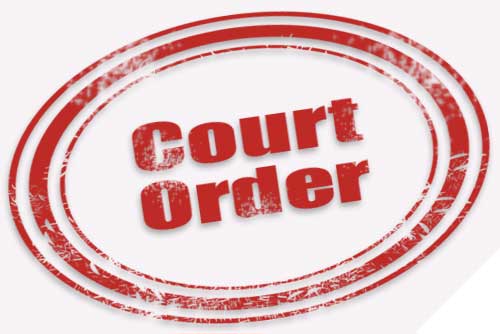A restraining order is a court order that may be granted to a person who believes s/he has been abused and wants protection from the abuse. The Plaintiff can apply for a restraining order to prevent further abuse if he or she has been physically assaulted, threatened, forced to have sex, or abused in other ways.
What can a restraining order do for the Plaintiff?
In a restraining order, a judge may order the other person (the Defendant) to:
- Stop abusing you, the Plaintiff.
- Leave your home even if the person owns or pays rent for the home.
- Not contact you and stay away from you, your home, your work, and/or your children.
- Pay for expenses you have had because of the abuse, such as medical expenses, property damage, or lost wages;
- Give up any firearms.
Who Can Get a Restraining Order?
- A spouse or former spouse
- A present or former household member
- A relative by blood or a present or former relative by marriage
- The parent of a minor child, even if the parents never married or lived together
- A person involved in a substantial dating relationship with the victim.
How to Obtain a Restraining Order
You may obtain a restraining order in any district, superior or probate and family court in Massachusetts. An emergency order is available through any police department after court hours and on weekends.
A sworn statement (affidavit) describing the facts of a recent or past incident(s) of abuse is required on the application or complaint form for a restraining order. It is also important to provide information about the abuser, such as work address, telephone, birth date and social security number.
What happens at a Massachusetts Restraining Order Hearing?
Restraining order hearings are conducted before a judge. That means the courtroom will be open and people may be in attendance. Judges should not hold the hearing at the sidebar because of safety concerns. At the hearing, the person seeking the order, the Plaintiff, has the burden of proof. That means they must convince a judge by a preponderance of the evidence that they are in fear of abuse. Both sides may offer testimony and evidence. Either side may call witnesses and cross-examine one another. Judges will issue their ruling at the end of the hearing. A judge may either issue the order for up to one year or they may decline to issue the order.
To Obtain or Defend Against Restraining Orders in Massachusetts, Contact Us Today
No one should ever feel unsafe or threatened. Massachusetts General Laws, chapters 209A and 258E, afford protection against behavior that is abusive and harassing. If you want to find out more about harassment orders and restraining orders in Massachusetts, the family lawyer at Nasios & Associates, LLC can help.
We help clients across Southeastern Massachusetts and can provide advice and guidance to victims of domestic abuse and harassment – including emergency situations that demand an immediate response – as well as to those who have been accused/named as defendants in restraining order matters. Schedule a consultation at our offices in Brockton, Massachusetts and let us help you.




